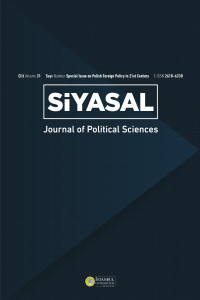Abstract
This paper is an attempt to draw attention to the problem of using public diplomacy and soft power as a tool in foreign policy making of Poland. As the Republic of Poland has made an effort to use these tools actively since the 1990s and became even more active after its accession to the European Union in 2004, it is important to answer the question of where the limits of the use of these tools are and what positive and negative effects they can bring. For Poland - the active country, together with strong will to change its international environment - public diplomacy and soft power are perceived as indispensable in fulfilling this ambition however they require a proper use, compatible with the potential they have. In this paper, we will try to analyze the potential, will and implications of public diplomacy, and soft power use in Polish foreign policy making with an analytical approach.
Keywords
References
- Özgün Erler Bayır, Atlantikçilik Avrupacılık İkileminde Polonya Dış Politikası, İstanbul, Derin Yayınları, 2013.
Abstract
References
- Özgün Erler Bayır, Atlantikçilik Avrupacılık İkileminde Polonya Dış Politikası, İstanbul, Derin Yayınları, 2013.
Details
| Primary Language | English |
|---|---|
| Subjects | Political Science |
| Journal Section | Articles |
| Authors | |
| Publication Date | April 11, 2022 |
| Submission Date | November 25, 2021 |
| Published in Issue | Year 2022 Volume: 31 - Special Issue on Polish Foreign Policy in 21st Century |


